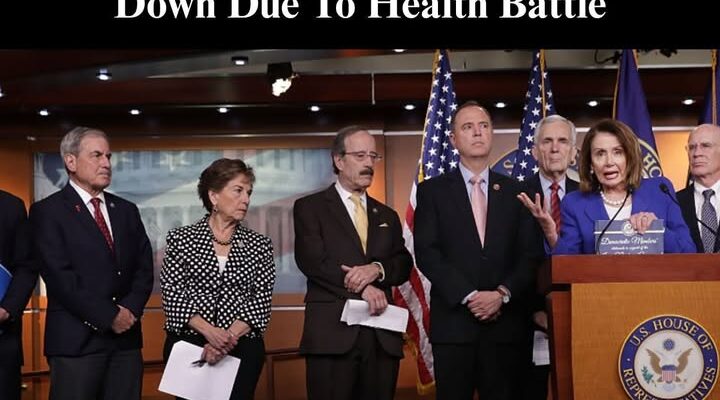A long-serving Democrat in the U.S. House unexpectedly announced he will serve out his current term but will not seek reelection after being diagnosed with cancer, further jeopardizing the party’s chances of regaining control of the chamber.
Rep. Gerry Connolly (D-VA), 75, revealed in a letter to supporters that he was diagnosed six months ago and has since wrestled with the concern that continuing his campaign could harm Democrats’ efforts to win back the chamber.
“Your outpouring of love and support has given me strength in my fights – both against cancer and in our collective defense of democracy,” he wrote in a letter addressed to “friends.”
“When I announced my diagnosis six months ago, I promised transparency. After grueling treatments, we’ve learned that the cancer, while initially beaten back, has now returned. I’ll do everything possible to continue to represent you and thank you for your grace,” Connolly added. “The sun is setting on my time in public service, and this will be my last term in Congress. I will be stepping back as Ranking Member of the Oversight Committee.”
However, the seat is unlikely to be a prime pickup opportunity for the GOP. Cook Political Report rates Virginia’s 11th Congressional District as D+18, and Connolly has consistently secured about two-thirds of the vote in Fairfax County, including the northern suburbs of Washington, D.C.
Virginia Republicans, buoyed by Gov. Glenn Youngkin’s success since the pandemic, are likely to field a competitive candidate, however, forcing the Democratic Congressional Campaign Committee to spend valuable resources defending a seat that likely would have been safe under Connolly.
Another factor could be the exodus of fired federal workers. Terminations under the Trump administration have driven up home sales in the D.C. metro area as the ranks of the unemployed grew and longtime bureaucrats relocated. These demographic shifts could work to a Republican candidate’s advantage.
Election forecasters remain divided on which party will control the House after the 2026 elections. While generic ballot tests generally show an advantage for Democratic candidates, 270 to Win projects Republicans will secure 208 reliably red seats compared to 205 for Democrats, leaving 22 seats considered too close to call.
Retirement season has claimed several other Democratic veterans as well. Rep. Jan Schakowsky (D-IL), 80, announced she will leave Congress after completing her 15th term rather than face a primary challenge from a 26-year-old newcomer. A similar situation is unfolding in San Francisco, where Rep. Nancy Pelosi (D-CA) is weighing whether to continue her career against a former aide to socialist “Squad” member Rep. Alexandria Ocasio-Cortez (D-NY).
Meanwhile, some Democrats are not retiring but looking to climb the political ladder. Rep. Angie Craig (D-MN) announced a run for Minnesota’s open Senate seat next year, while Rep. Kristen McDonald Rivet (D-MI) is eyeing a Senate bid following Sen. Gary Peters’ (D-MI) announcement that he will retire, according to Punchbowl News.
At the same time Democrats retire or jockey for position, other long-serving leaders are coming under fire to step aside and allow a younger, more left-wing generation of members replace them. That includes Senate Minority Leader Chuck Schumer of New York, who discussed the situation on Sunday.
“I am staying put, and I’m fighting the fight every day, as is our caucus, in a united and successful way,” he said on CNN’s State of the Union Sunday. “We’re showing America how bad Trump is, and showing that Republicans who embrace Trump do so at their peril.”
Sen. Dick Durbin, the Senate minority whip with 44 years of service, said in last week’s retirement announcement that it was time to “pass the torch.”
Schumer last faced calls to step aside in March after he chose not to shut down the government over a Trump-backed funding bill. Colorado Sen. Michael Bennet had urged Democrats to “have future conversations” about party leadership.



